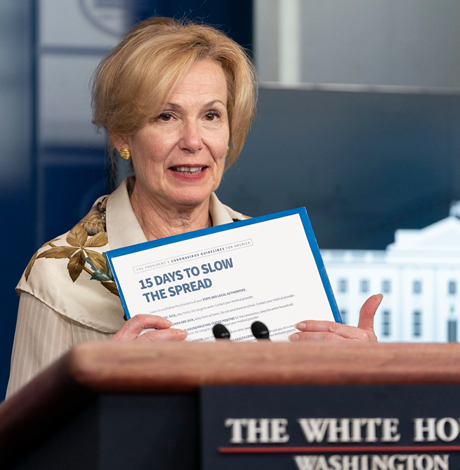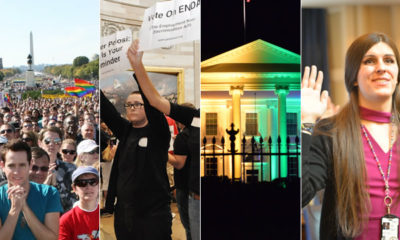Arts & Entertainment
Welcoming the world
Activists, filmmakers prepare for Int’l AIDS Conference with busy lineup of local events
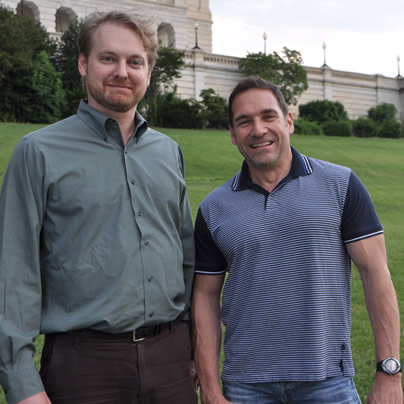
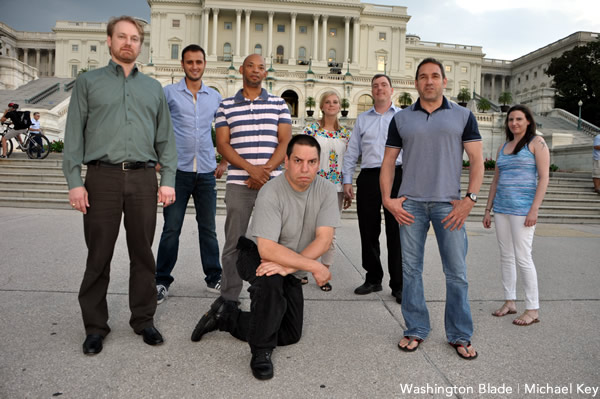
Members of the World AIDS Institute team (l-r): Chad Johnson, Diego Alves, Noel Short, David Miller, Angela Kelly, Kevin Maloney, Dave Purdy and Mariel Selbovitz. (Washington Blade photo by Michael Key)
As Washington gears up to host the International AIDS Conference for the first time in 22 years, local organizations have planned a bounty of free or independent events for those who could not afford the $150-$1,045 registration fee.
Global Village, an international organization that brings together leaders, researchers and performers from all over the world to increase awareness of HIV/AIDS, is hosting several sessions within the conference ranging from video screenings and art exhibitions to networking zones and meeting rooms. Everything the Global Village is hosting is free and open to delegates and locals.
“We are trying to connect science, research and community,” coordinator Joseph Elias says. “It is important that the D.C. community participates to get a grasp of what is happening locally and globally.”
Several of the events will be geared toward youth under the age of 30 dealing with HIV/AIDS.
Emily Carson, youth program coordinator at Global Village, says the focus on youth has been in demand.
“Young people are disproportionally affected by HIV,” she says. “In the conference in 2000, there were only 50 young people, and they said this is a severe problem, no one is speaking for us.”
Among the many attractions in the Global Village area, there will be an interactive story telling booth called, “Generations HIV.” The booth looks like a photo booth, but it records video instead.
The booth was created by Marc Smolowitz and Jörg Fockele, both San Francisco-based filmmakers, as part of their HIV Story Project. The booth has been featured three times in the San Francisco Bay area and has so far collected about 250 clips. The HIV Story Project is a non-profit organization that compiles multi-platform story telling and short films about living with HIV/AIDS.
“The booth is a conversation starter,” Smolowitz says. “It is to connect different generations of people living with HIV. You can ask questions of different generations, answer questions or record your personal story.”
Smolowitz and Fockele are currently trying to start an archive online where all the videos will be posted.
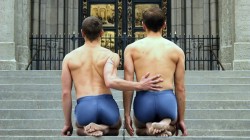
A still from ‘Ours,’ one of the films being screened July 24-25 in the AIDS Film Festival. (Image courtesy the Festival)
Along with the booth, the HIV Story Project team also has a movie screening at the International AIDS Film Festival, which is occurring in conjunction with the conference from July 24-25. The film is titled, “Still Around,” and is a compilation of 15 short films portraying different people living with HIV/AIDS in the San Francisco area. The people were paired with 16 different directors and had direct say in their own films. The films vary, and include stories about how people are thriving with the disease. One subject is a man who copes with his HIV-positive status through a hooking ritual. Another is a couple that marries, has a daughter and faces HIV/AIDS together.
Fockele says the film is an update of what the face of HIV/AIDS looks like in the U.S. and in Europe today.
“In Europe and the U.S. there are mostly historic films about HIV and AIDS,” he says. “What we went out to do is to get a film that is right here, right now.”
The movie is opening the festival on July 24 at 7 p.m. Tickets are $10, and a pass for all four films is $25. For more information about the International AIDS Film Festival 2012, visit internationalaidsfilmfestival.org.
The film festival and several other community events are a part of the AIDS2012 Reunion, a resource for conference attendees to see what local events are taking place outside the main conference.
“The one thing we are doing is we are allowing anyone to participate,” managing director David Purdy says. “Low-income people are one group that needs support and to get educated about HIV/AIDS.”
Some of the events in the AIDS2012 Reunion as well as other community events include:
• On July 20-21, the DC Center, National Coalition of LGBT Health, Whitman-Walker Health and Us Helping Us at George Washington University (2029 G St., N.W.) are hosting the Gay Men’s Health Summit. Registration is $85, $65 for students.
• On July 21, Jay Brannan is playing at the U Street Music Hall (1115A U St., N.W.) at 7 p.m. Tickets are $20.
• From July 21-27, the Textile Museum (2320 S St., N.W.) is showing a special display of one panel from the AIDS Quilt. An $8 donation is suggested.
• On July 22, there’s a March on Washington involving several different local organizations from noon to 2 p.m.
• On July 19 and 23, Arena Stage (1101 6th St., S.W.) hosts a benefit performance of its current production, the Larry Kramer-penned AIDS classic “The Normal Heart” at 8 p.m. Tickets are $65.
• On July 24, “Return to Lisner: A Forum on the State of HIV/AIDS,” is taking place at the Lisner Auditorium at George Washington University (2029 G St., N.W.). Registration is required.
For more events, visit the AIDS2012 Reunion website aids2012reunion.org.
These events are only a fraction of what will be occurring throughout the D.C. Metropolitan area.
Chris Dyer, organizer for the Gay Men’s Health Summit, says by hosting separate events from the conference, organizations can make them more focused on certain groups.
“Gay men’s health issues are unique,” he says. “The main conference deals with a variety of issues, but we are providing a safe place for gay, bisexual or trans men to talk about their specific issues in a safe place.”
Purdy also says that organizations like AIDS2012 Reunion bring the focus back to what is happening locally and connecting people to services they may not be aware of.
“We’re providing an opportunity to participate and win this war against AIDS,” he says.
Bringing the spotlight back to Washington, local filmmakers Art Jones and Pam Bailey are also presenting their documentary “13 Percent,” which is about how the African-American population in Washington and other metropolitan areas has been affected by HIV/AIDS in the past 10 years. The movie will be screening at Bloombars (3222 11th St., N.W.) on July 24 at 7 p.m. RSVP and $10 donation is suggested.
The film is intermixed with interviews from medical professionals, political leaders, religious leaders and those living with the virus. They showcase a variety of people affected by the disease and their stories, one of the most compelling being a young woman named Raven.
Raven was born with HIV and when her mother informed the Catholic school she was attending, Raven began facing daily discrimination from teachers and students. She describes how one teacher put garbage bags around her and would bar her from going on class trips. All of this occurred well after it was known how the virus is spread.
“I am hoping [the audience] take away the recognition that we are a community that is really threatened,” Jones says. “This film should be a call to action.”
He hopes this would lead to more exposure of how much of a threat HIV remains.
Purdy wishes similar things for attendees of the conference and the different community events.
“Really, I hope people have a new commitment or a recommitment to work together in this fight,” he says. “I would like them to share stories and remember the 30 million who have died from AIDS worldwide. There is a lot of work that needs to be done.”
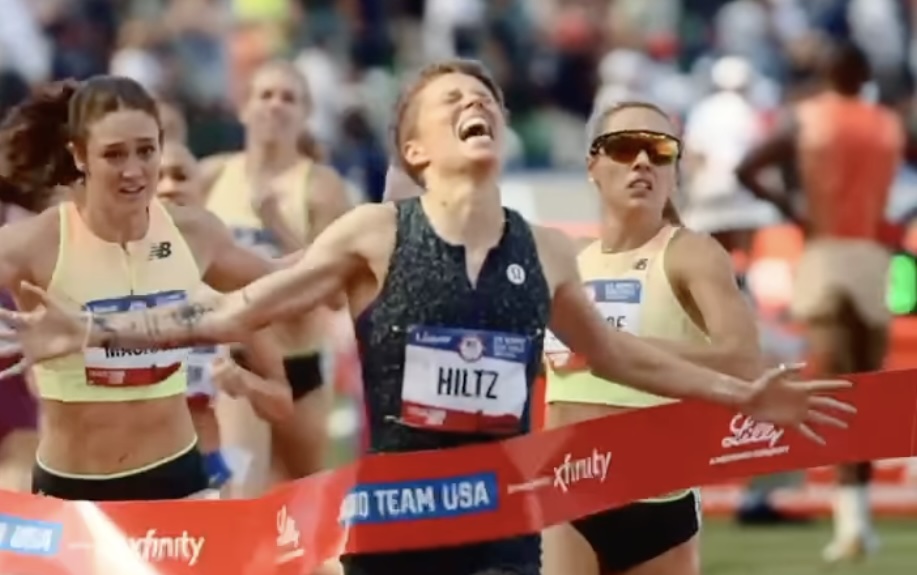
They ran like the wind, broke the tape at the finish line, and clutched their chest with the broadest smile on their face. Then Nikki Hiltz collapsed to the track, having set a new record in the 1,500-meter race at the U.S. Olympic track and field trials and earned a spot on Team USA.
As the realization sank in that they would be representing the U.S. in Paris as an out transgender nonbinary athlete, what the Paris-bound Olympian did next was to scribble a message of LGBTQ representation on the last day of Pride Month, writing with a red marker upon the glass of the camera that records each athlete’s signature on a whiteboard:
“I ❤️ the gays,” they wrote, and above it, they signed their first name.
Hiltz, 29, finished the race on Sunday at the University of Oregon’s Hayward Field in first-place with a final time of 3:55:33, breaking third-place finisher Elle St. Pierre’s 2021 record of 3:58:03.
Hiltz credited St. Pierre, the top-finishing American and third-place finisher in the women’s 1,500 at the Tokyo Olympics, with motivated them and the other competitors to race faster. With a first lap time of 61 seconds, St. Pierre led the race for the majority of its duration. St. Pierre and Emily Mackay, who placed second, also both earned spots in the Paris Olympics.
“If someone would have told me this morning that 3:56 doesn’t make the team, I don’t want to know that. I’m just in the race to run it and race it and that’s what I did,” Hiltz said after the race. The Santa Cruz native who came out in 2021 as trans nonbinary told NBC Sports that the accomplishment is “bigger than just me.”
“I wanted to run this for my community,” Hiltz said, “All of the LGBT folks, yeah, you guys brought me home that last hundred. I could just feel the love and support.”
On Monday, Hiltz reflected on the race and how they became an Olympian in a post on Instagram.
“Woke up an Olympian. 🥹 Yesterday afternoon in Eugene Oregon a childhood dream of mine came true. I’m not sure when this will fully sink in … All I know is today I’m waking up just so grateful for my people, overwhelmed by all the love and support, and filled with joy that I get to race people I deeply love and respect around a track for a living. 🙏”
Hiltz also shared a photo with their girlfriend, runner Emma Gee, and captioned it: “Remember in Inside Out 2 when Joy says “maybe this is what happens when you grow up … you feel less joy”? Yeah I actually have no idea what she’s talking about. 🎈🌈🤠🦅🥐🇫🇷”
They shared photos in their new Team USA garb, too.
While they will be the first out trans nonbinary member of the U.S. track and field team, Hiltz will not be the first nonbinary Olympian. That honor goes to Quinn, who played soccer for Canada in Tokyo and holds the record as the only nonbinary athlete to have won a gold medal. So far.
Many of the posts by Hiltz, Team USA and others have been trolled by bigots and ignoramuses who have mistaken them for a trans woman who was presumed to be male at birth and transitioned genders. Right-wing outlets and anti-trans activist Riley Gaines have commented on their victory and questioned their gender identity and decision to compete against cisgender women.
A female who identifies as trans earned a spot on the U.S. women’s Olympic team.
I wonder why she didn’t try out for the men’s team. It’s almost as if she understands she would never be able to compete or succeed at same level against the men.
Tellinghttps://t.co/M5Lj9G0aEi
— Riley Gaines (@Riley_Gaines_) July 2, 2024
But in the spirit of the late Marsha P. Johnson, who famously said the “P” stood for “pay no mind” to the haters, Hiltz shared a photo of a handwritten motivational note to themself, which ends: “I saw a quote online the other week that said, ‘respect everybody, fear nobody,’ and that’s exactly how I’m going to approach this final. I can do this.”
And they did.
a&e features
Rehoboth’s Purple Parrot still soaring after 25 years
Owners Hugh Fuller and Troy Roberts reflect on keys to their success

Two buildings, one romance, and 25 years later, the Purple Parrot is busy as ever.
If the tropical purple paint covering the outside with rainbow flags and walls covered with love notes, affirmations, and drunk wishes scribbled on dollar bills don’t indicate it already, the Purple Parrot is an institution in Rehoboth. The gay-owned and operated fixture is celebrating its 25th anniversary this year.
The Blade sat down with owners Hugh Fuller and Troy Roberts of the Rehoboth establishment to discuss the past 25 years and plans for the future.
Fuller and Roberts, both gay, have been working together since before the Parrot was even an idea. Fuller was a co-owner of the Iguana, another restaurant and bar in the town.
“I was in the Iguana first with another business partner,” Fuller said. “I was going to get out and move up to Pennsylvania with him [Roberts]. He decided that he was going to come down and said, ‘Well, what if I go in with you at the Iguana and we do it together?’ And I was like, ‘Alright,’ so we did, and it just snowballed from there. We were always in the restaurant business together from the beginning.”
“Yeah, that was really luck, too,” Roberts began. “Because-”
“Because Grindr wasn’t around then!” Fuller interjected, laughing as Roberts began to roll his eyes and smile.
“I had a small place up in York,” Roberts continued. “Selling that kind of gave us some money to buy the other guy out. We just had friends supporting us and helping us along the way and it just kind of worked.”
“Kind of worked” would be an understatement. The pair moved on from the Iguana and opened the Parrot. Then, after opening the Parrot, they decided to shift locations to a larger location down the street to accommodate the growing demand. Then in 2010, the Parrot expanded again, adding the land behind the Rehoboth Avenue location, which provided an additional 950 square feet as well as giving patrons access to Wilmington Avenue.
The bar and restaurant, which serves American cuisine with a beach flair, has always focused on being a welcoming space to all regardless of sexuality, gender, race, nationality, or identity. This, the duo explains, is one of the reasons why the restaurant has had such a lasting impact on the Rehoboth restaurant and gay communities.
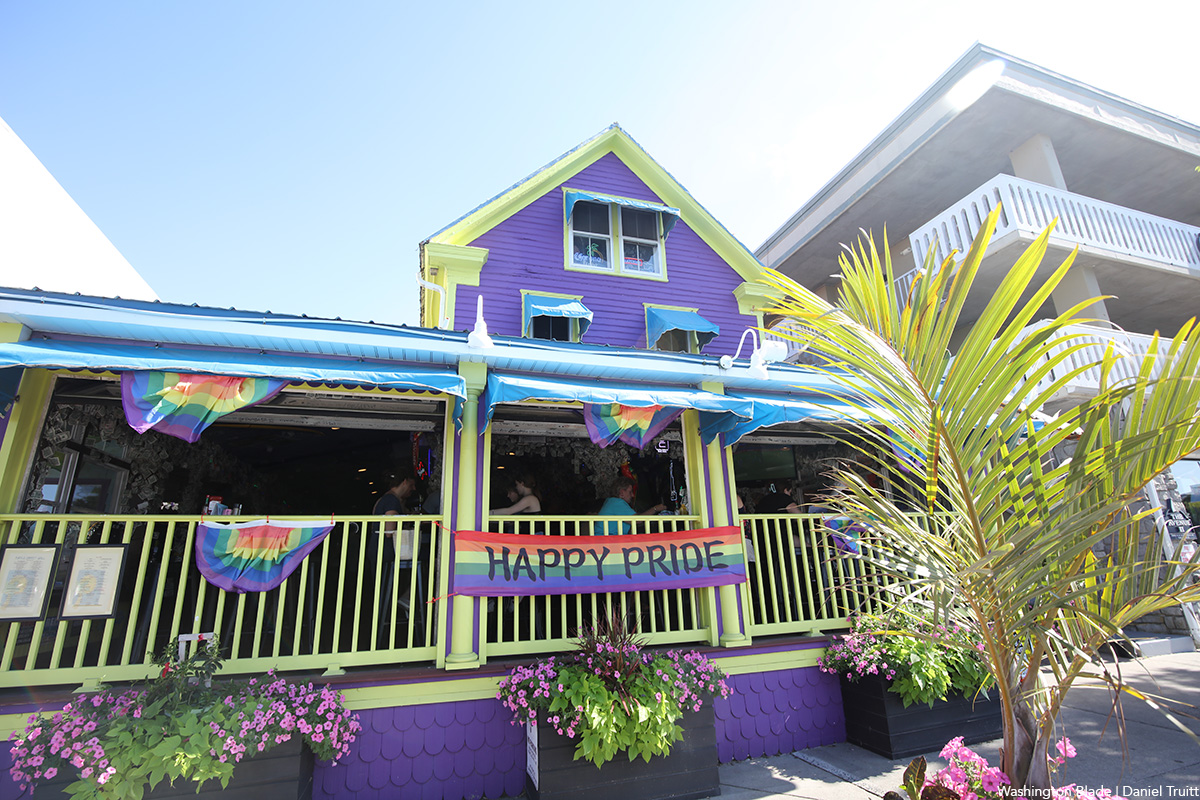
“Back in the ‘90s when we first opened up, the amount of straight crossdressers that would come were like, ‘Oh, are we allowed to come in? Are we welcomed into a place like that?’ And we were like ‘Everybody that walks on this planet is welcome here!’” Fuller said. “Those are the kinds of things, you know, where people just felt comfortable. They would get stared at out on the street, but inside they would walk around and feel like they were in their own skin. It was just really cool to see.”
The feeling of acceptance has been a crucial part of the Parrot’s success.
“I got an email a couple of days ago — probably two weeks ago about a woman bringing her daughter down,” Roberts said. “She’s 16 and was bullied through school — hard times, depression, tried to harm herself a couple of times. It was just really sweet that she reached out and she’s like, ‘My daughter was a completely different person when I brought her into your bar. Everybody treated her nice — the bartenders, the waitstaff, I mean, everybody was friendly. She just doesn’t experience that often being an out 16-year-old lesbian. We just can’t even thank you enough.’ It’s those kinds of things that we get often.”
“[The mother] mainly wrote it because we put the Pride flag on the Parrot’s Facebook wall,” Fuller added.
The colorful lights, disco balls, and staggering number of dollar bills stapled to the walls highlight that the Rehoboth community has embraced the Parrot. It’s not uncommon to see a group of gay patrons sitting at the bar in bathing suits sipping on orange crushes and talking about their day at Poodle Beach while a bachelorette party belts out Lady Gaga on karaoke night in the room next door. That is the vibe Fuller and Roberts have curated — a fun and friendly tropical oasis in the middle of Rehoboth Avenue.
A crucial element of this curated vibe, the pair point out, is treating employees and guests with respect. When asked what they have learned that helped them be so successful over the past 25 years, Fuller and Roberts said the same thing.
“Patience, organization, and treating people well,” Roberts said.” I think that’s probably one of the bigger of the three — you treat them well and they treat you well. I think it’s just a mutual respect.”
“It took me about 30 years to learn that it’s not just all about work,” Fuller said. “I used to bust my butt in there all the time and the focus was [on] the restaurant. I know [Roberts] said patience, I would say mine was being patient too because I learned going in that it’s easier to deal with your employees without shouting at them. It took me a little while to get through that.”
He added that compensating staff fairly was also one of their keys to success.
“Before we take a nickel out of our business, we put $1 back into our employees’ pockets,” Fuller said. We want the business to survive and it has been incredible.”
Fuller added that this sentiment, of having patience and treating everyone with respect, goes both ways — it applies to the Parrot’s patrons as well.
“If you leave the Parrot angry, it’s your own decision,” Fuller explained. “If we don’t make you happy there, it’s because you’re choosing not to be happy. We will go out of our way to correct anything and everything that we can. So if you leave [unhappy], it’s not because we couldn’t do it. It’s because you didn’t want us to.”
The two discussed their history together — anyone who has them interact can see their spirited energy and appreciation for each other.
“Troy and I used to be a couple when we first opened, and we were together for about 10 years,” Fuller said. “And then we kind of went our separate ways, but the restaurant kept us in very close contact. Sometimes I think we’re probably closer than most couples are because of the way that the restaurant has us tied together.”
“Even during the worst of it, we never stopped communicating on a daily basis,” Roberts added. “Obviously, you can tell by his personality why that all went south,” he said laughing.
“Well, you can tell by the way that he looks why it went south.” Fuller jabbed back, also laughing.
“Hey!” Roberts replied.
“I wasn’t gonna continue dating my grandfather!” Fuller joked.
Despite the end of their romantic relationship, there was still clear evidence of perpetual good energy between the business partners. The two then started to reminisce about the past 25 years and the struggles and successes they overcame to reach this milestone.
The pair mentioned the two biggest struggles they have faced in the past quarter century. One was when Rehoboth Avenue was dug up for the Streetscape improvement project, and the second was the 2008 recession.
“We were refinancing our houses several times to keep it afloat there for a little while,” Fuller said.
“But hey, we got nice sidewalks now!” Roberts added. “So that’s good.”
It’s not just the customers who grew up with the Parrot; so did the staff.
“I mean one of the kids who bussed for us is now our dentist,” Fuller said.
“One of the busboys from the Iguana days, he’s our dentist now,” Roberts explained. “They actually started dating in high school while working together at the Iguana. One of them followed us to the Parrot and her daughter just worked for us two summers ago as a host. He’s our dentist, and they’re still local. We just sold him a house over in Lewes, because we’re both Realtors on the side. When you look back at that, you’re like, ‘Oh, my God, you were just a kid. And now you have a kid graduating college!’ It goes fast.”
It seems that many of the staff have a soft spot for the Parrot, and for good reason. An important aspect of keeping their employees happy is supporting them. At first, it was trips to Disney World with some of the servers and renting out the local waterpark to give kids time to enjoy the summer. Then it became Christmas bonuses, which are not common in the food service industry.
The Parrot helped raise more than $10,000 for one of their employees dealing with fallout from the war in Ukraine.
“One of our bartenders being from Ukraine, when all that went down, amazingly, how he was able to bring a lot of his family over,” Roberts said. “And until they actually got grounded, he had places for them to stay all lined up.”
“The reason that he was able to get them over is because we did a fundraiser at the restaurant and our customers raised over $10,000 to help sponsor his family and one of our other employees’ families,” Fuller said. “They brought them all the way up through Mexico and into the country and now they’re here with citizenship cards and working for us. We got them houses and apartments too.”
“We don’t care what they are, whether they’re straight, Black, Chinese, Mexican. It’s like the Benetton of Rehoboth in here,” Fuller added. “It’s the United Nations. We support everybody and we’re not afraid to show our support for everybody.”
In addition to reminiscing about some of the good things the restaurant has done for its employees, they both talked about notable guests of the Parrot.
“My mind went right to the guys from Manhattan, who would always come down,” Roberts said when asked if any guests have stuck out to him over the past 25 years. “They just happened to find us. They had never been to Rehoboth before. They walked into the original Parrot and had every single year after that until two of them passed away. It just became like a yearly week, then it turned into two weeks, and then it turned into two times a year. And it was all just because they came to one bar, and had so much fun. They would sit there all day, all night, go home take a nap, and come back for dinner. And it was just their place.”
They have faced some objections from those who were not as receptive to their tolerance of different people.
“We get the same hate that everybody else does — the same hate that the city got when they put the rainbow crossings in and the flag up,” Fuller said. “I was just telling Troy about a conversation I had yesterday with a guy. The front of our business for Pride month has flags on it and says ‘Happy Pride.’ And he said, ‘I was going to come in here but I see you’re supporting the gay community with your rainbow flags.’ And I said ‘Yes.’ And he goes, ‘Well, I don’t see why you don’t have flags for veterans.’ And I said,’ Well, as a veteran, I can tell you that we don’t serve to be recognized, we serve to protect and to give you guys your freedom. It’s not something that we want recognition for. But there is a flag, the American flag, that flies over the top of our business every day to represent the veterans of this country.’”
Despite the opinions of some who are less than welcoming of the LGBTQ community, the Purple Parrot will always be a safe space to celebrate, the two affirmed. And celebrate they will.
The Parrot already hosted one party to celebrate the milestone of the bar early in the summer, but will throw an even bigger bash at the end of the season to commemorate the history and hard work that has gone into making the Parrot ‘fly.’
“On May fifth we had a big party,” Fuller said. “We’ll have another one at the end of the summer in September. We did one at the beginning and then we’re going to do a really big one at the end of the summer. The first celebration, that weekend, turned out to be a little rainy, and misty so it wasn’t as big as it could have been. It was packed inside but it wasn’t packed outside like it normally is. We usually do a full cookout barbecue, all that stuff and we’ll do that again at the end of the summer. We’ll have another one of those with DJs. I am not sure about a drag show, but we’ll probably have something because the girls are trying to get something together. We don’t want to spoil anything but there will be a surprise.”
When asked to give their final thoughts on owning and running one of Rehoboth’s most successful businesses as gay men, the two made it clear that it has to be a safe and welcoming space for all for it to succeed.
“I think you have to be all-inclusive,” Roberts said. “I don’t think in today’s world you can just really limit it to the gay community. You have to be gay-friendly, and accepting as well. And I think that helps because it gets non-gays in there and everybody just starts to get along. It becomes more accepted and then becomes the norm.”
Fuller agreed but emphasized being true to one’s character in collaboration with being inclusive is the key to their success.
“Being gay isn’t who we are, you know, it’s what we are,” Fuller said. “You can’t be afraid to be you. … If you’re going to open up a business, you want to make sure you lean on the community, because the community is going to be your biggest support. And that’s how we definitely lean on the gay community.”
The Purple Parrot is located at 134 Rehoboth Ave. in Rehoboth Beach and is open Monday through Saturday from 11 a.m. to 1 a.m. and is open from 9 a.m. to 1 a.m. on Sundays. For more information, visit their website at ppgrill.com.
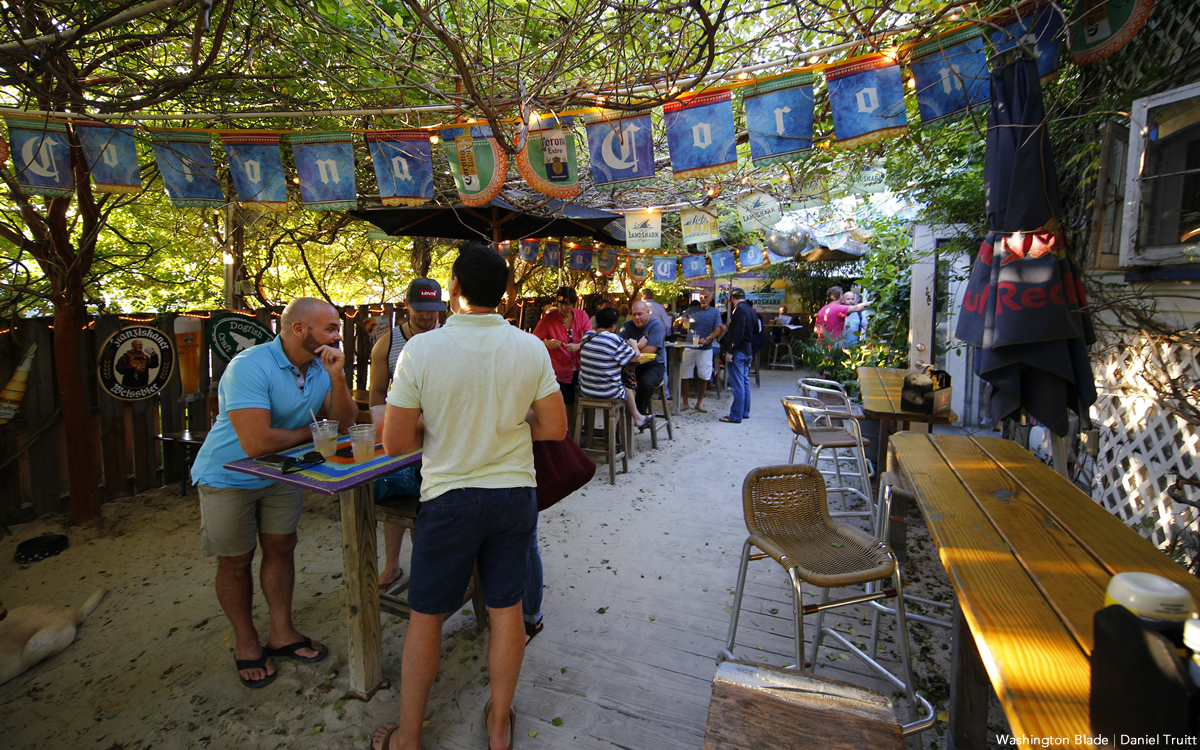

The 2024 New York City Pride Parade wound through the streets of Manhattan and past the historic Stonewall Inn on Sunday, June 30.
(Washington Blade photos by Daniel Truitt)
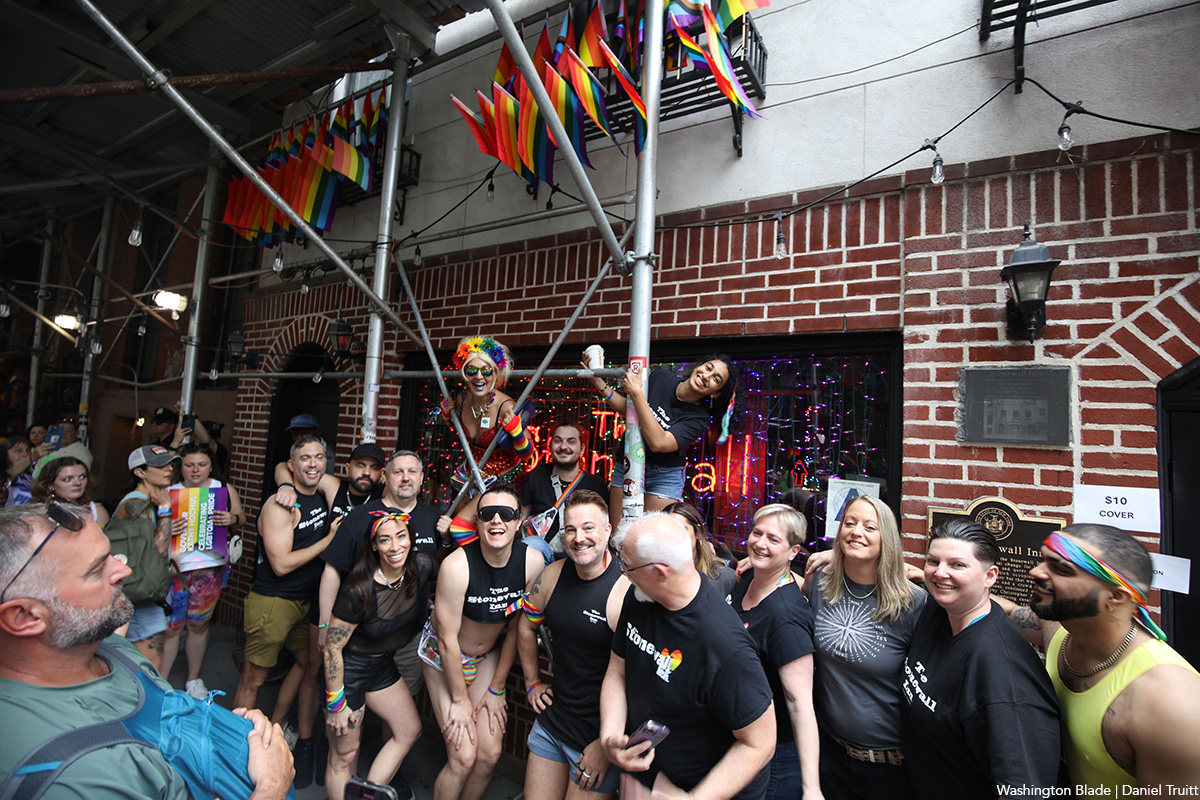
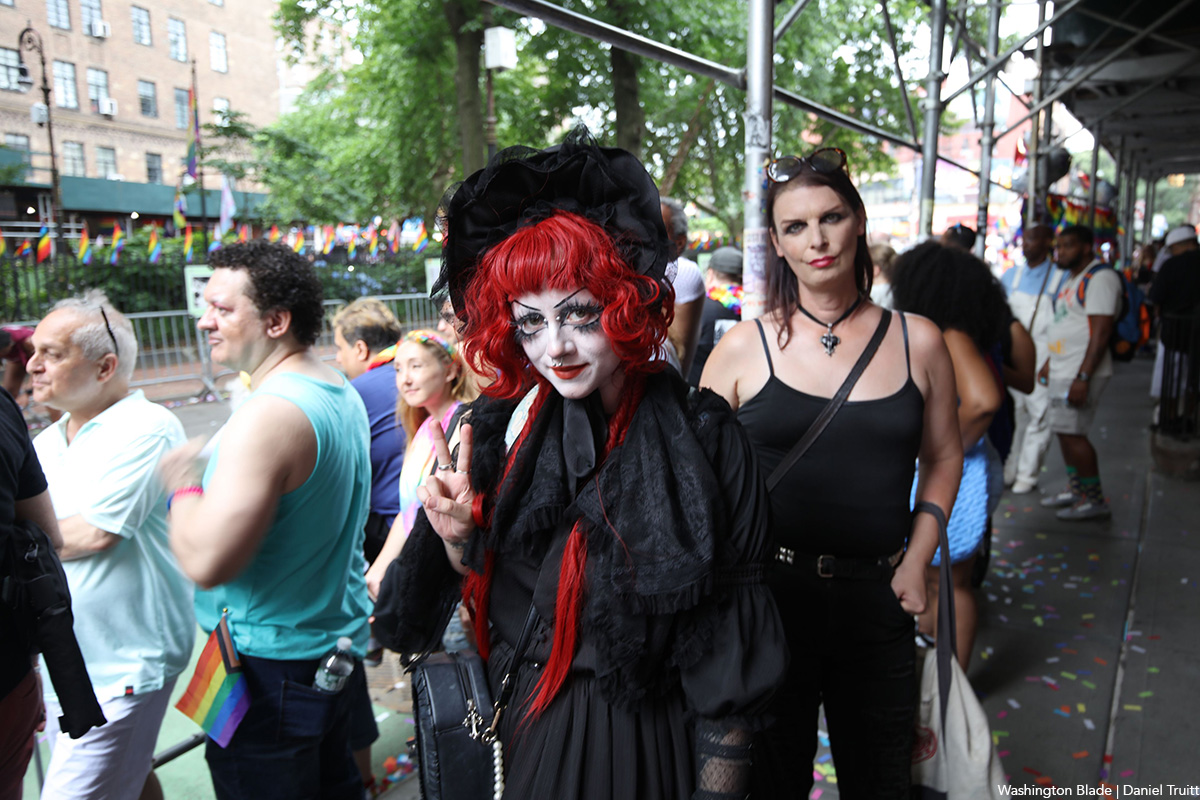
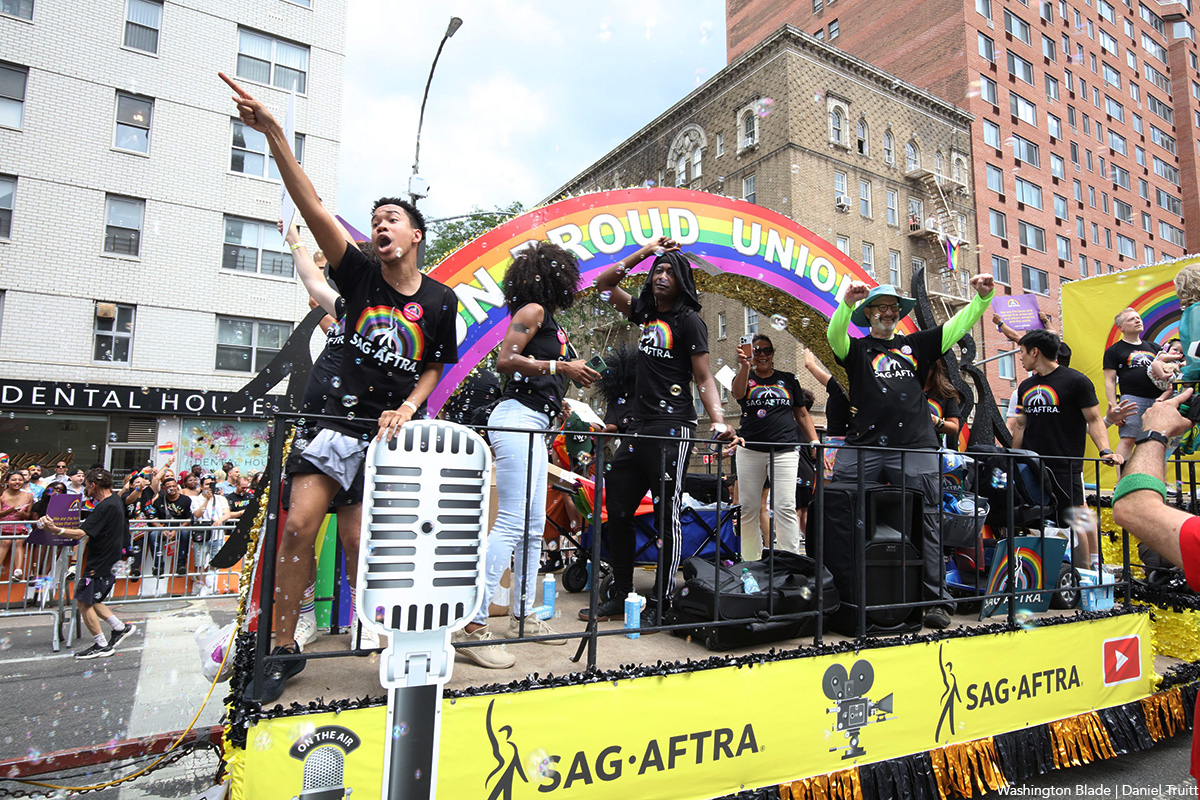
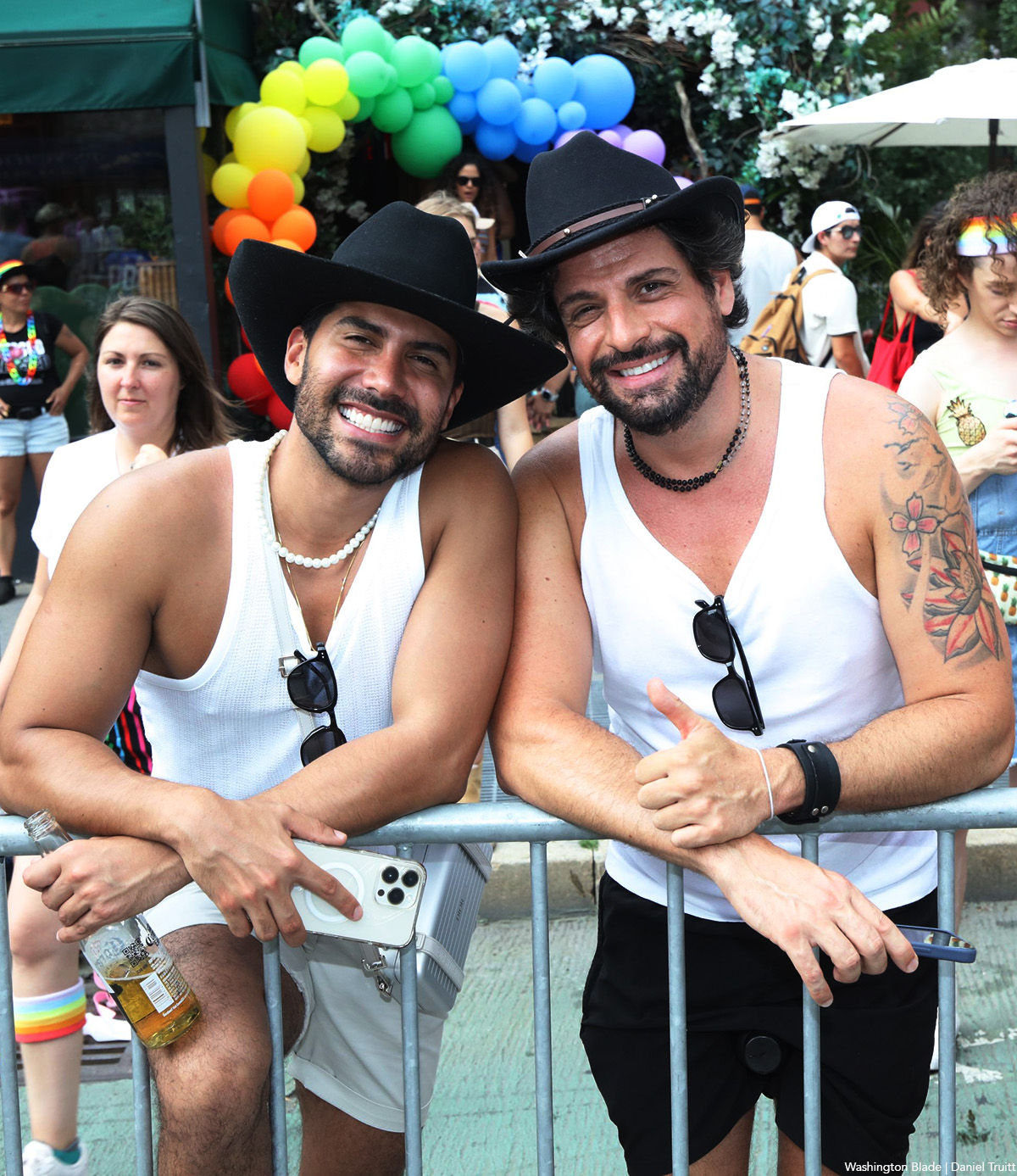
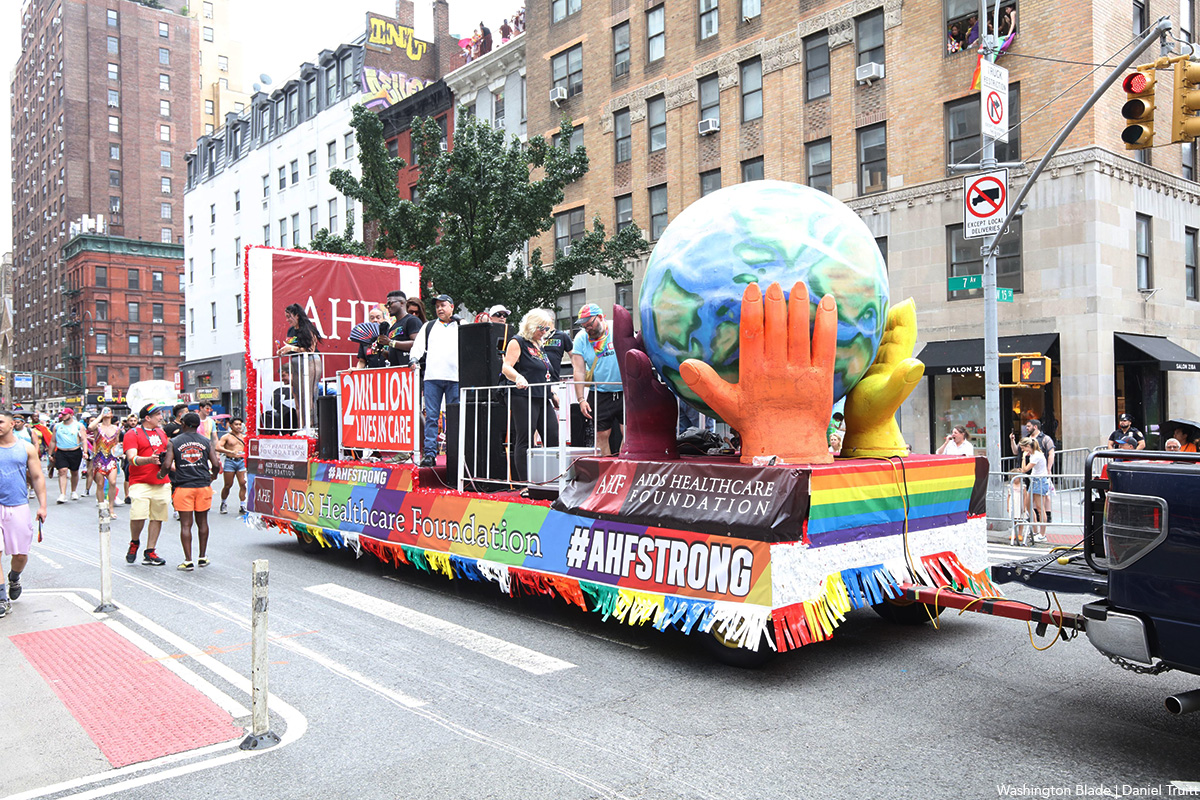
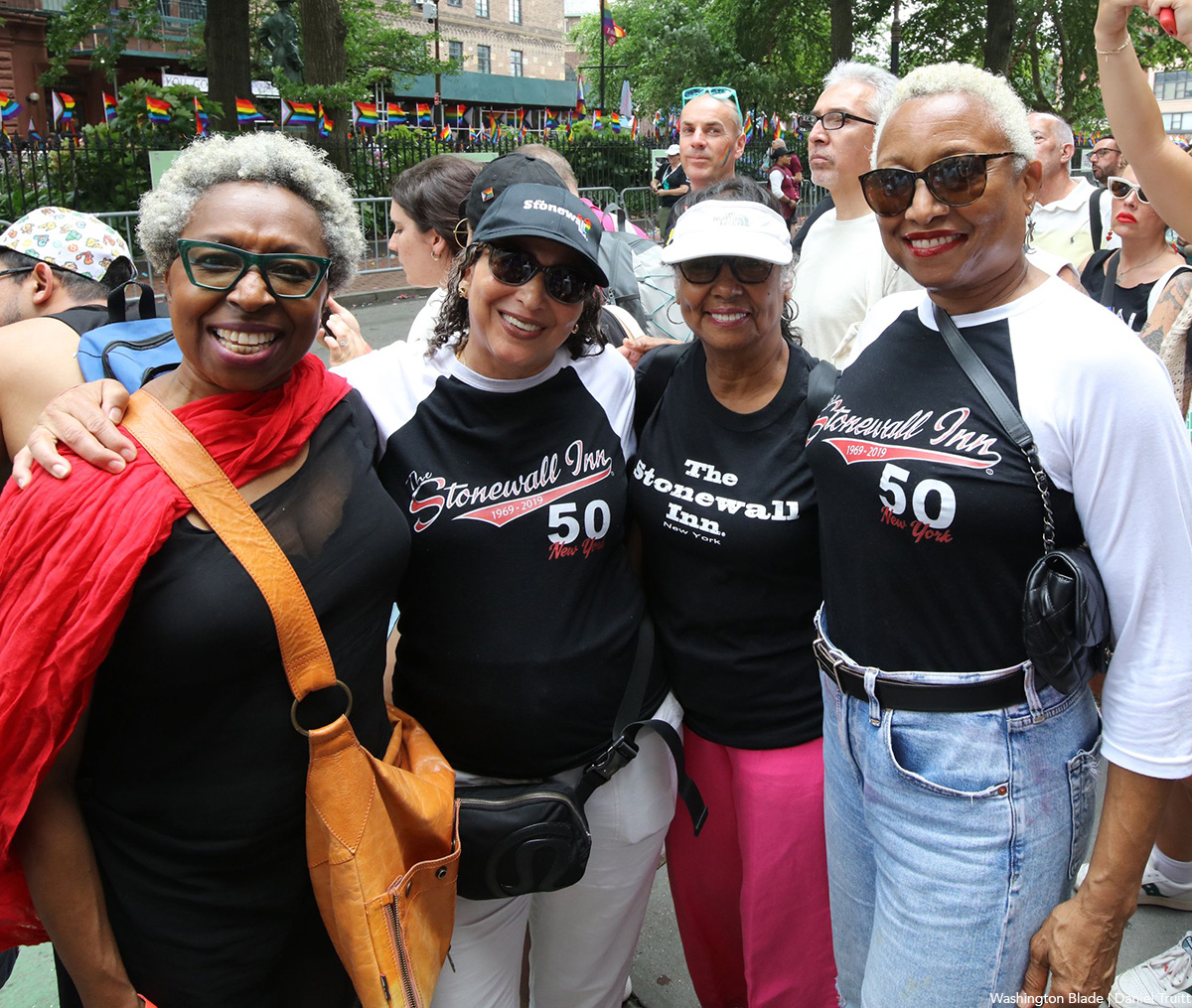
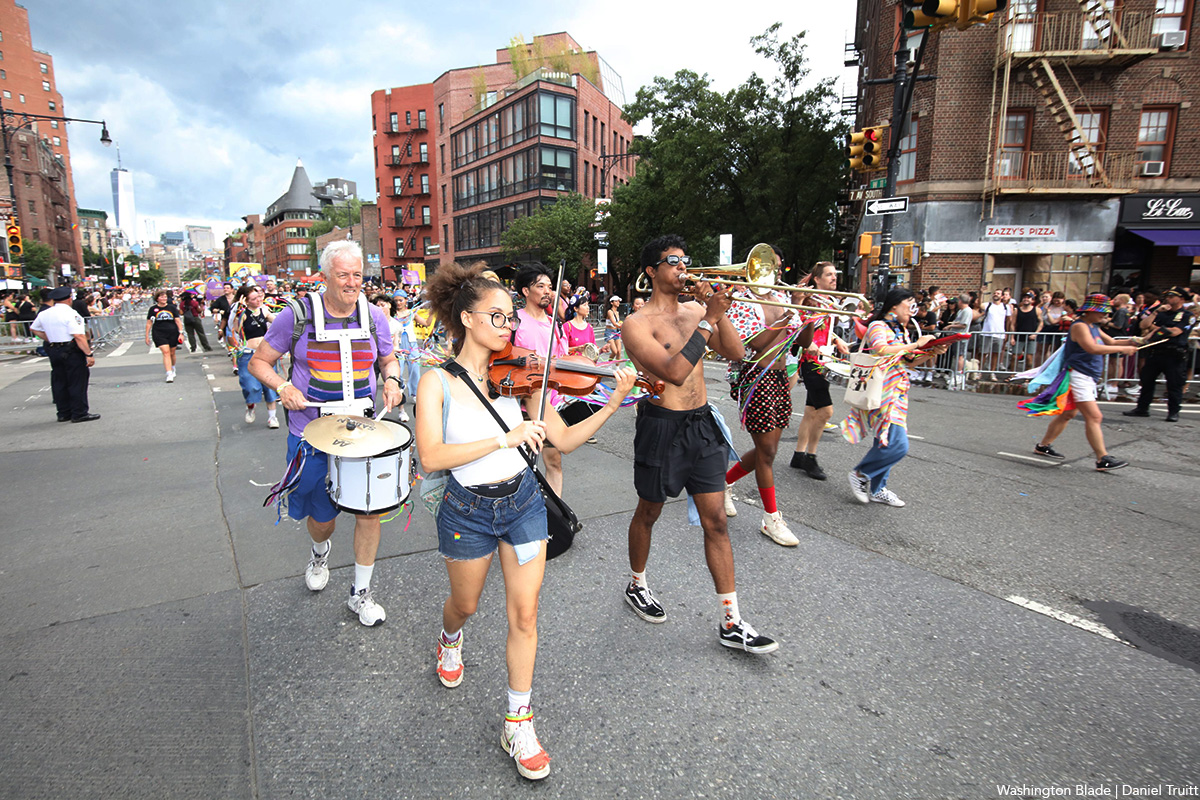
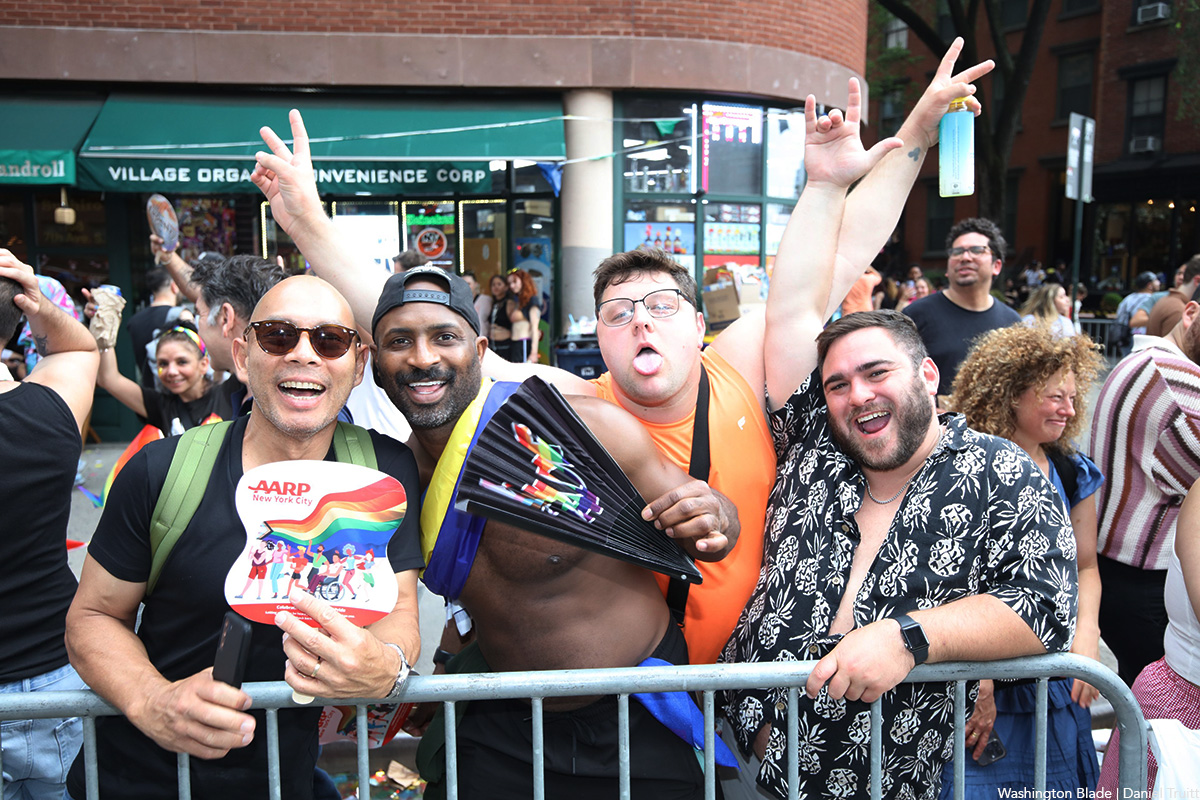
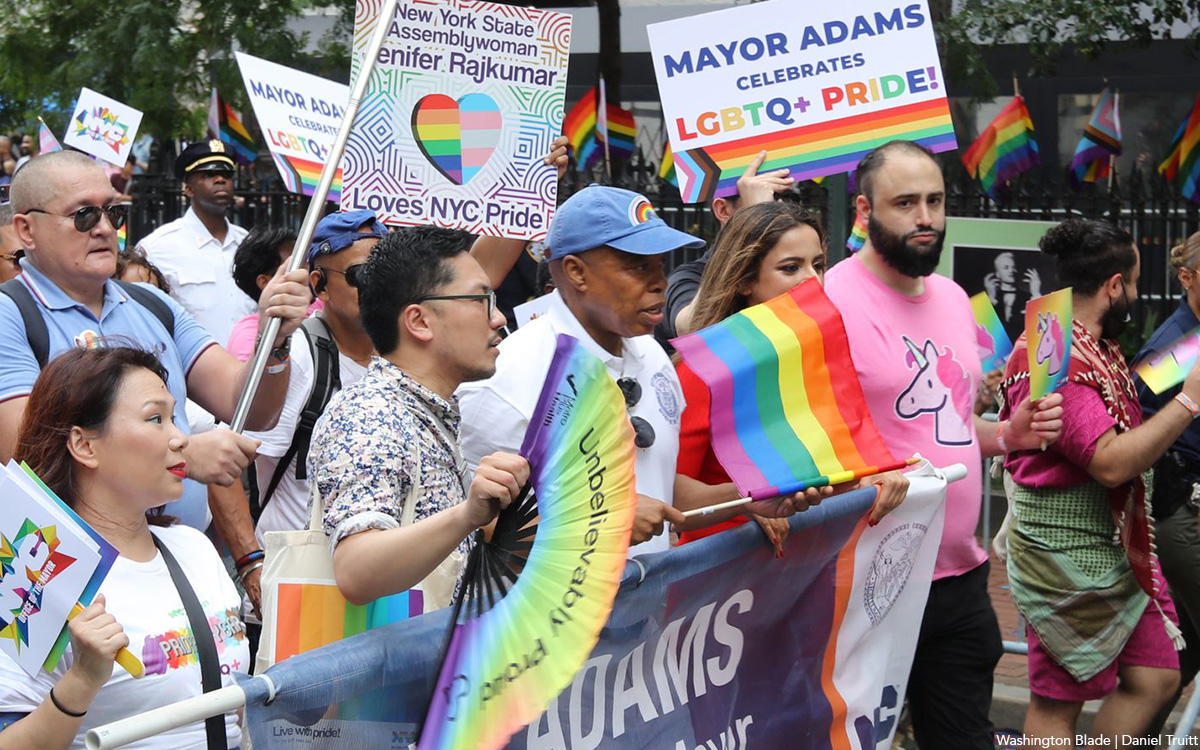
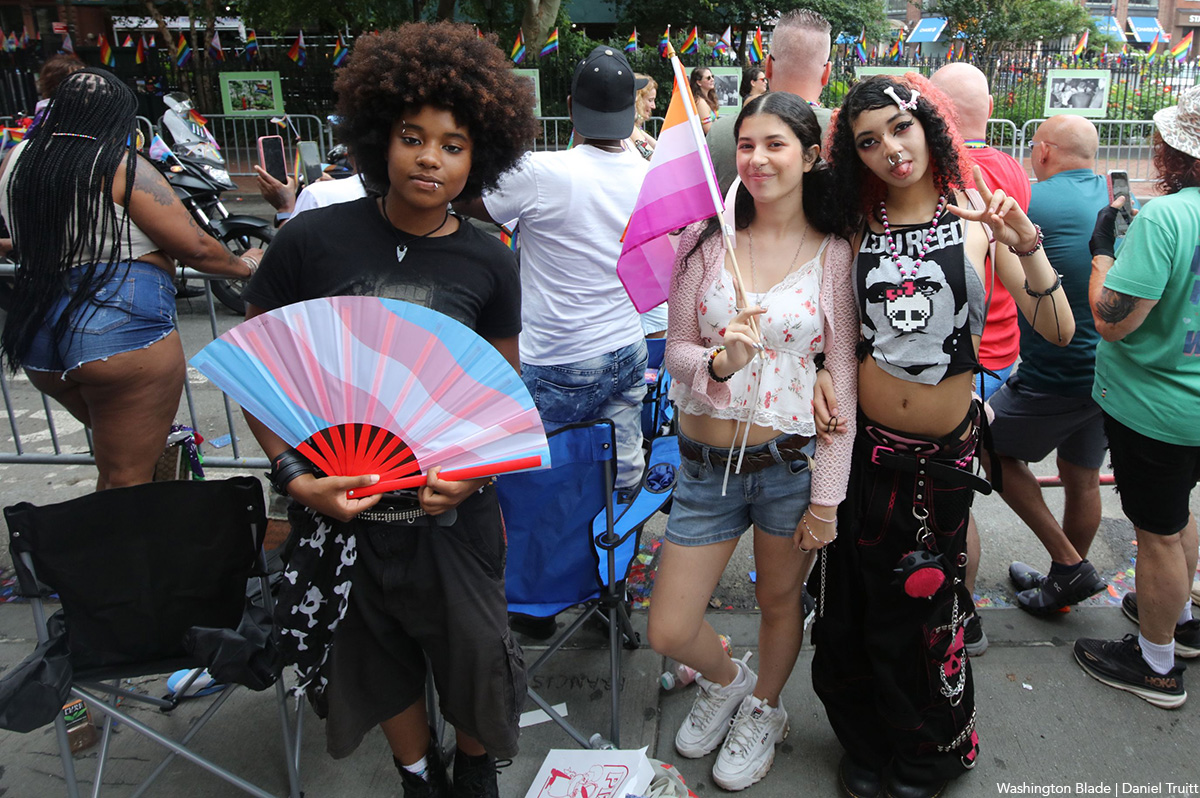
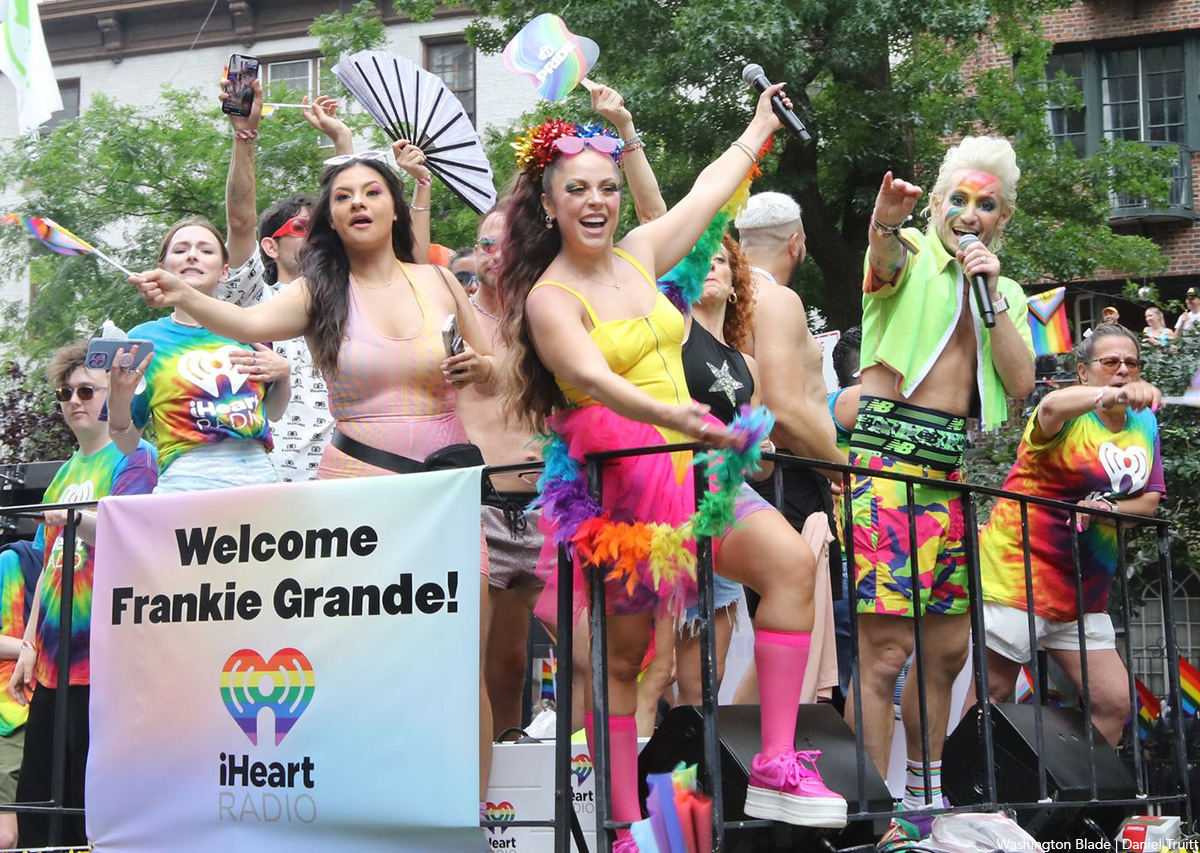
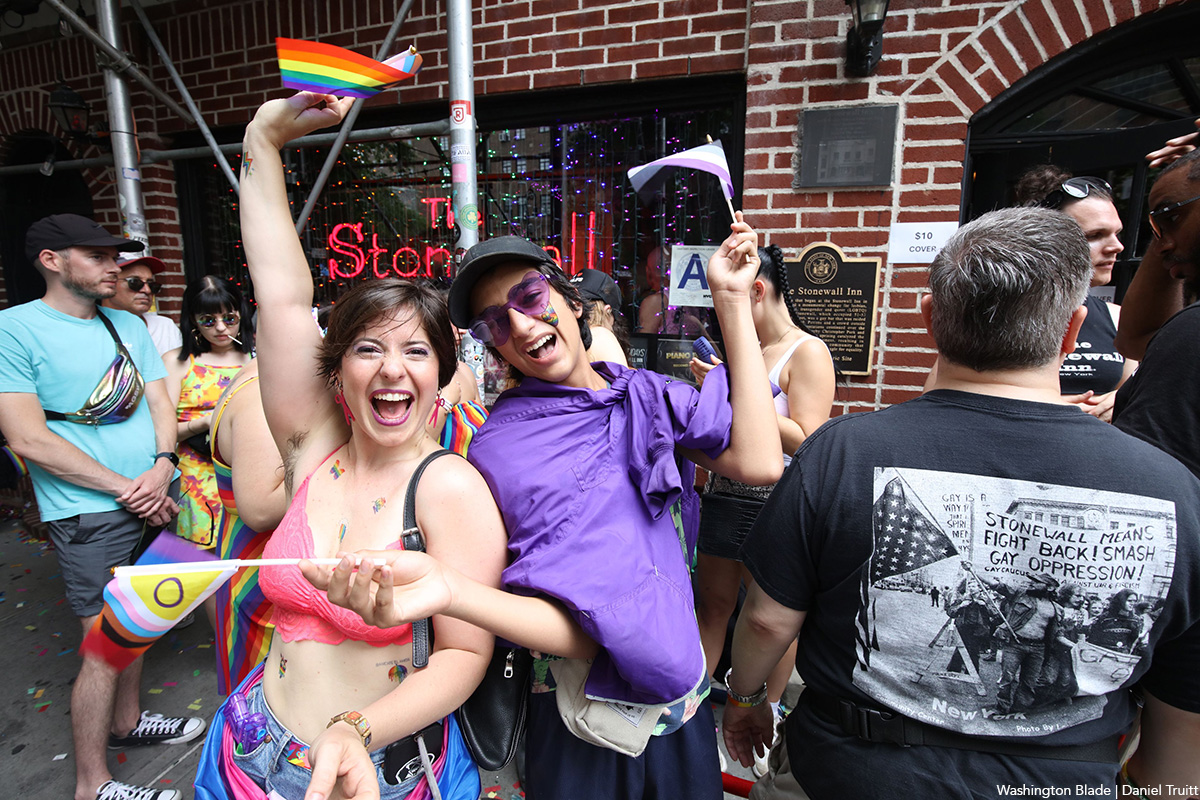
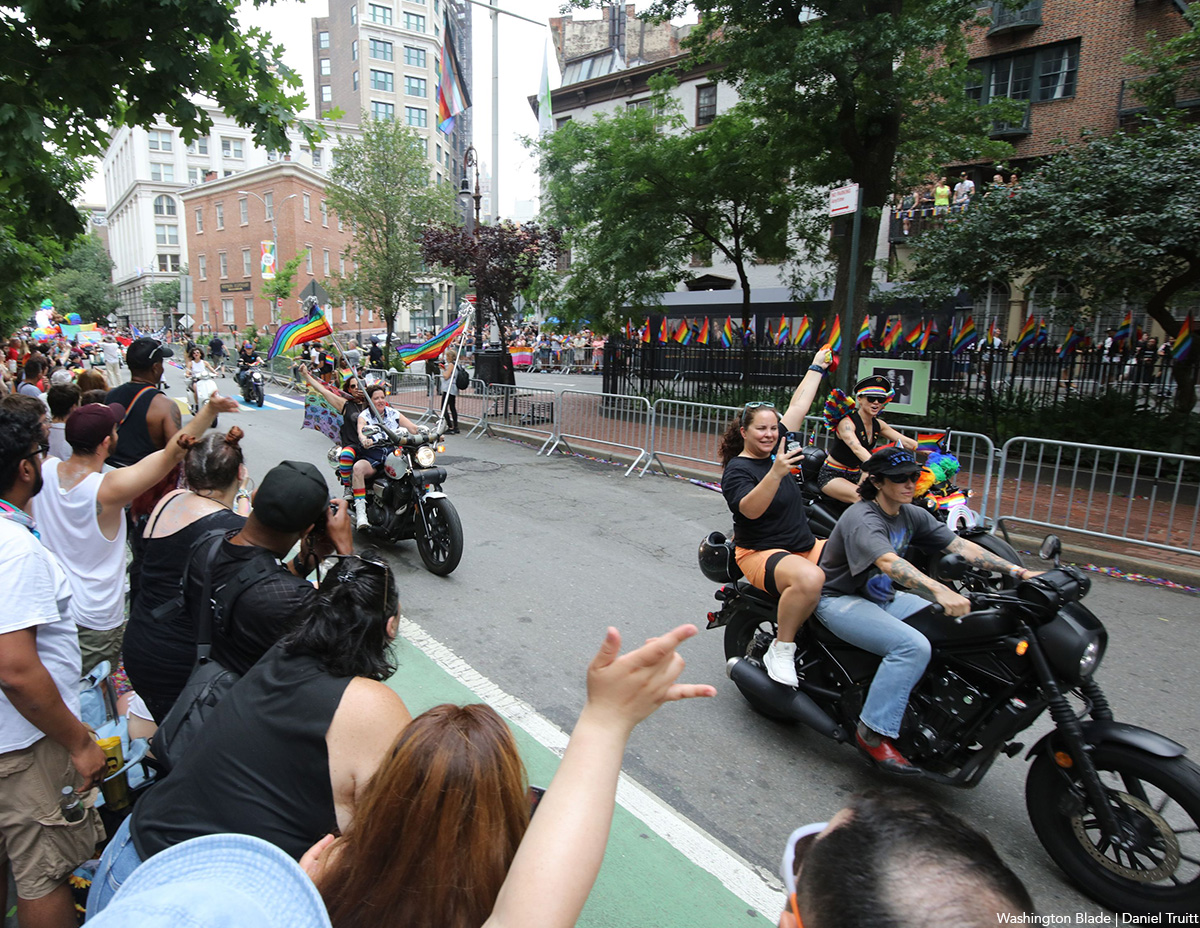
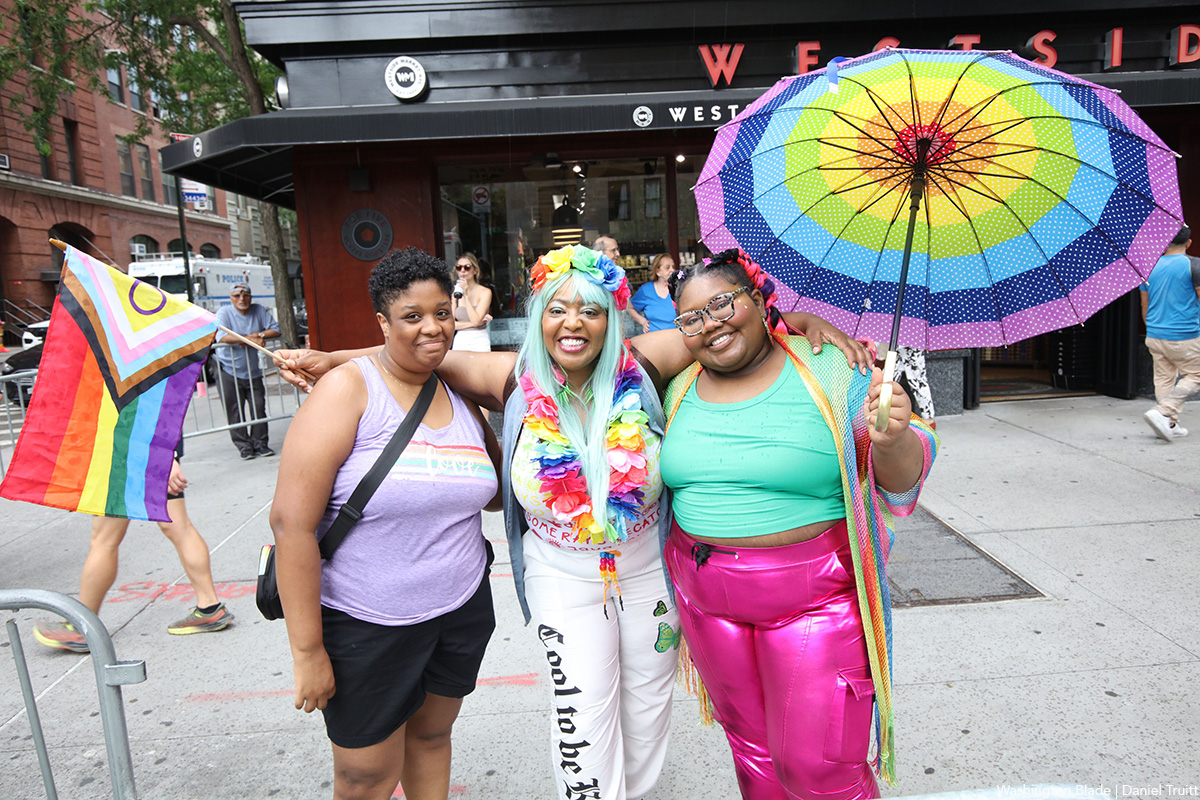
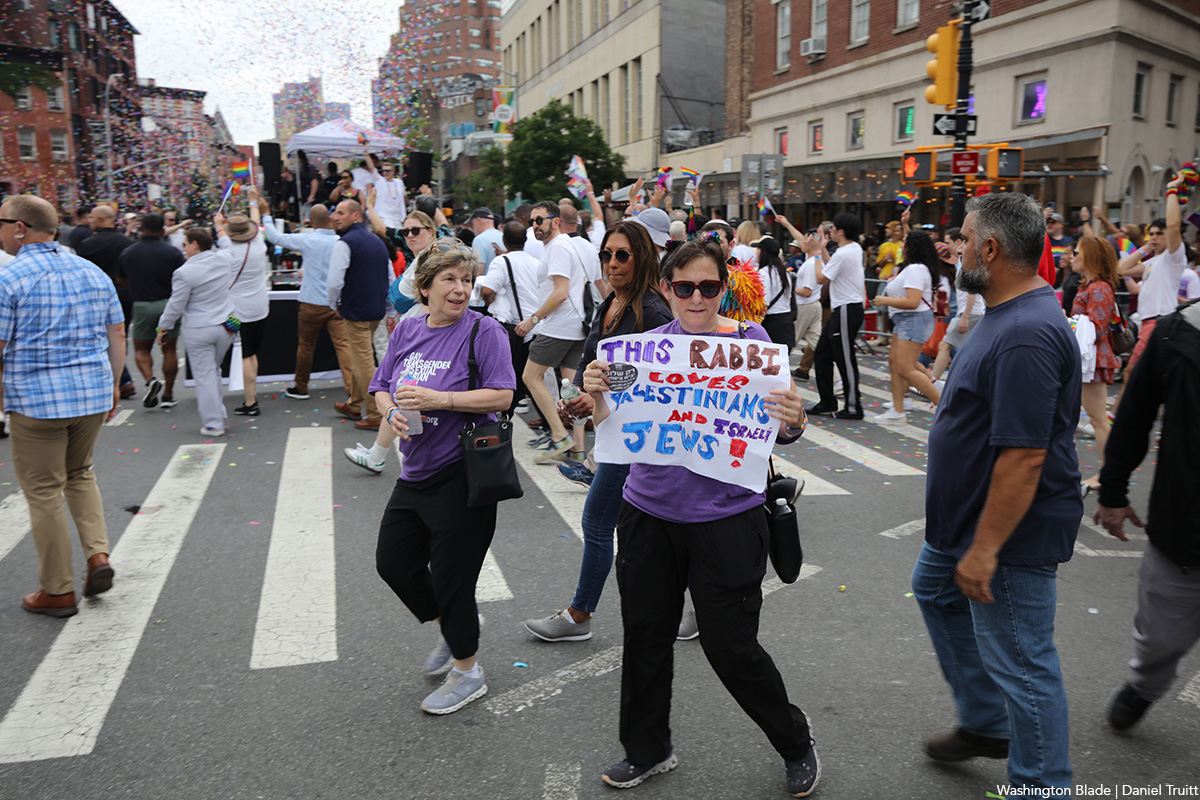
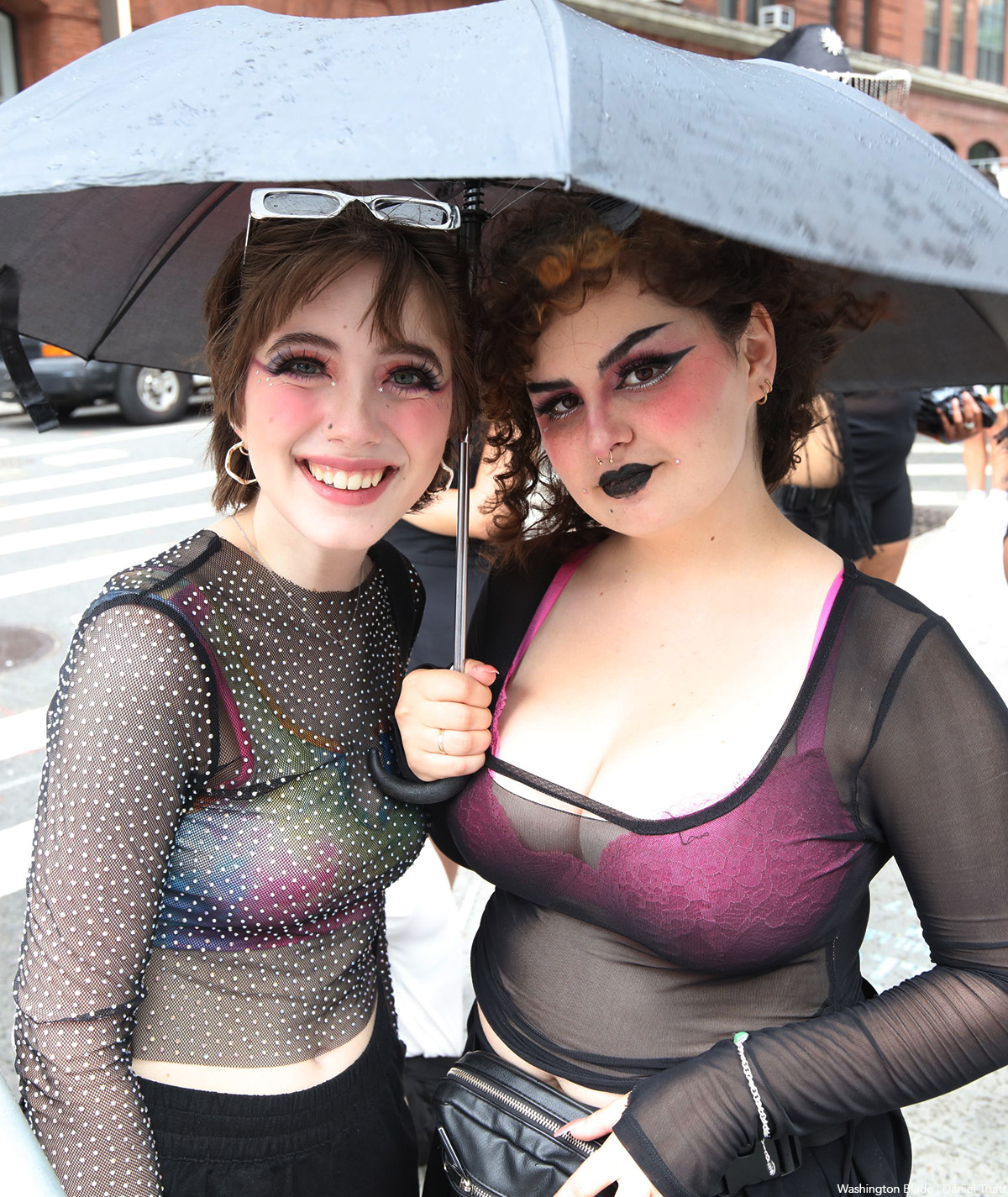
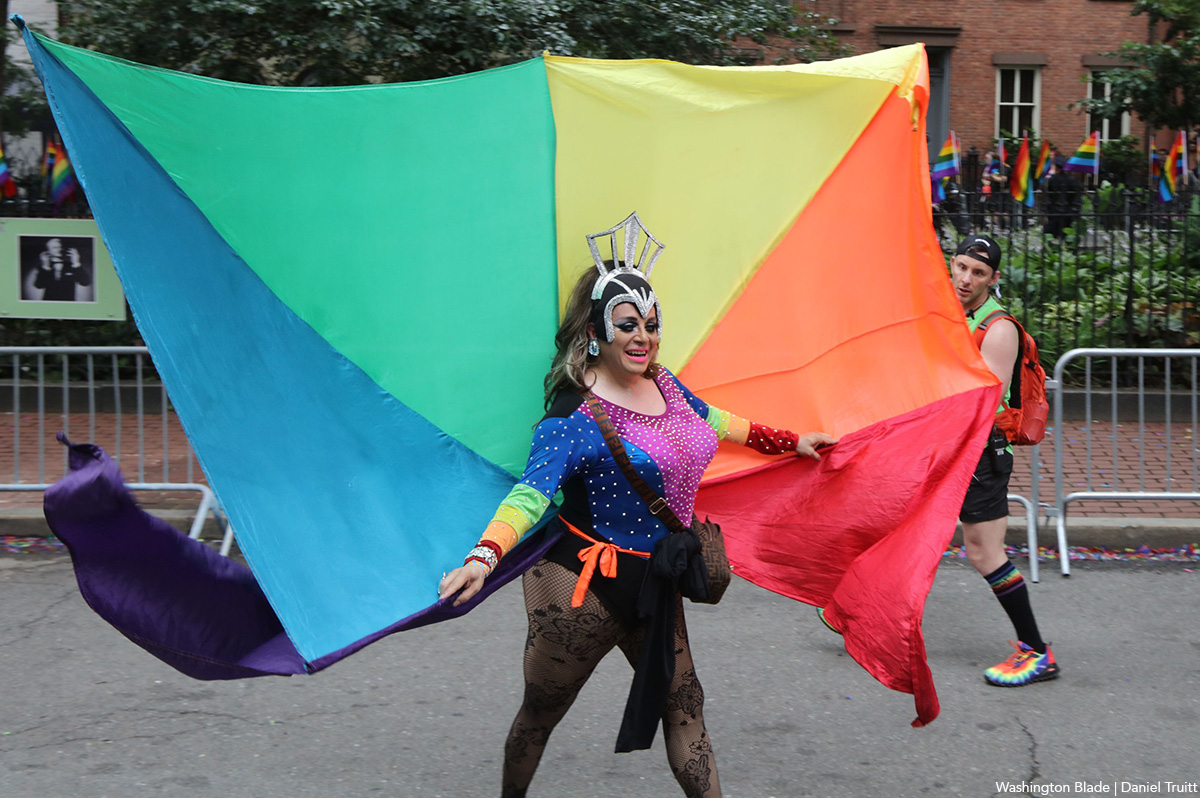
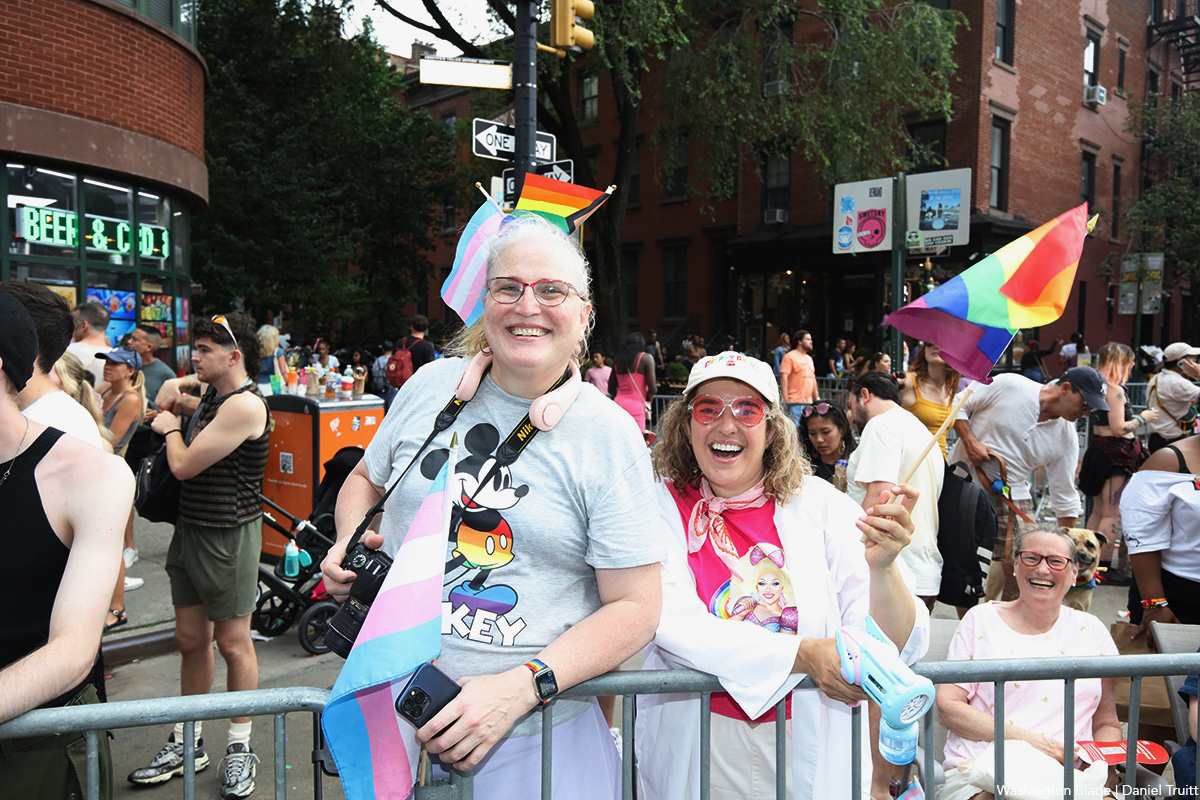
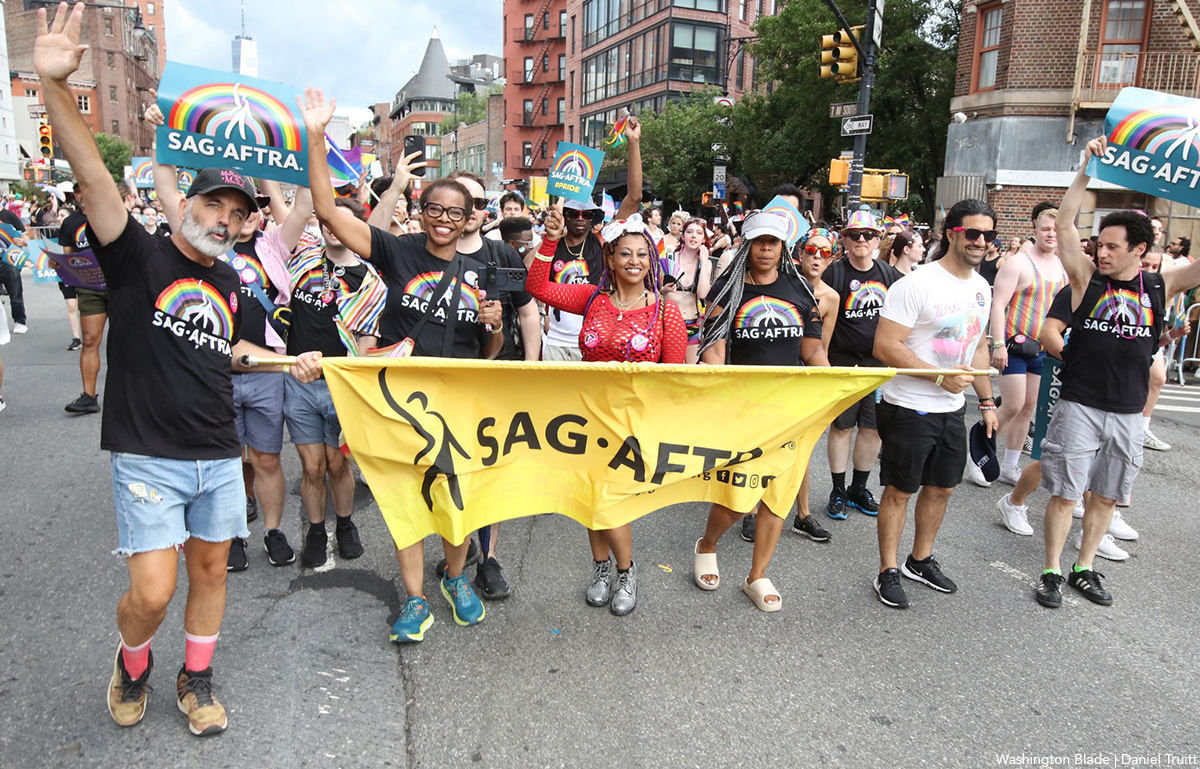
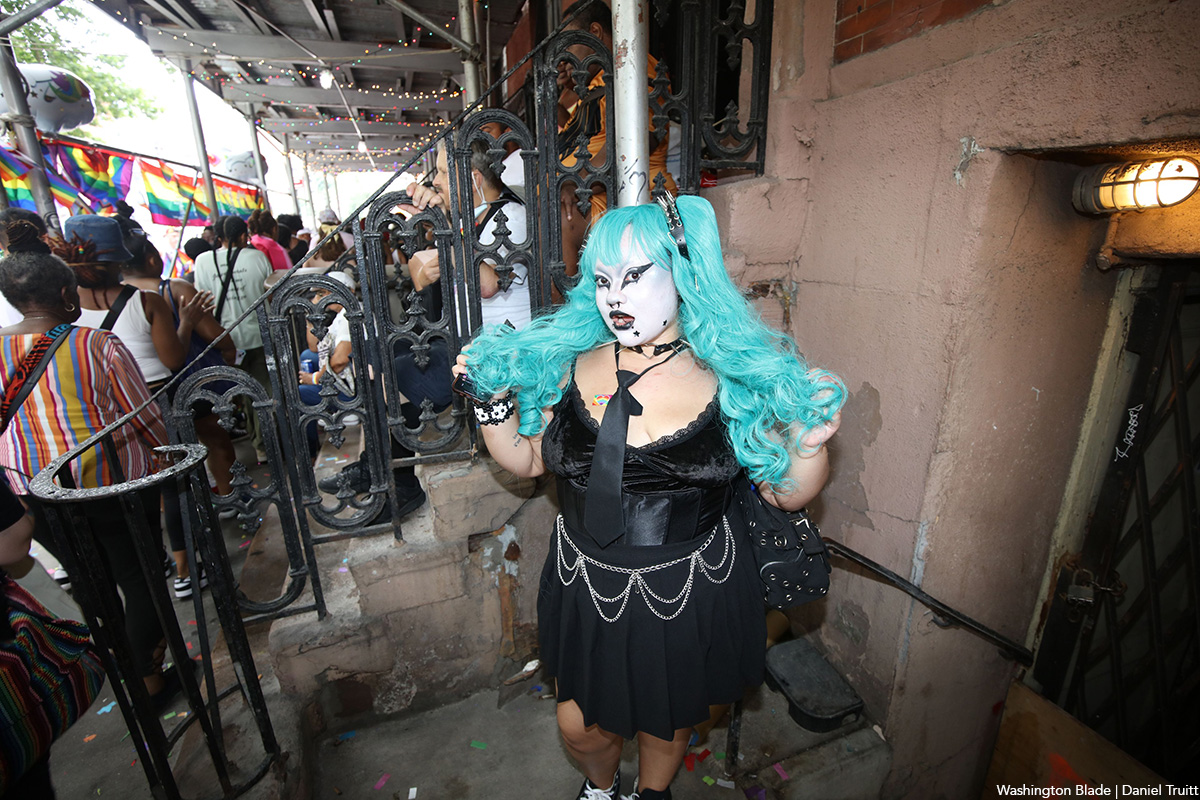
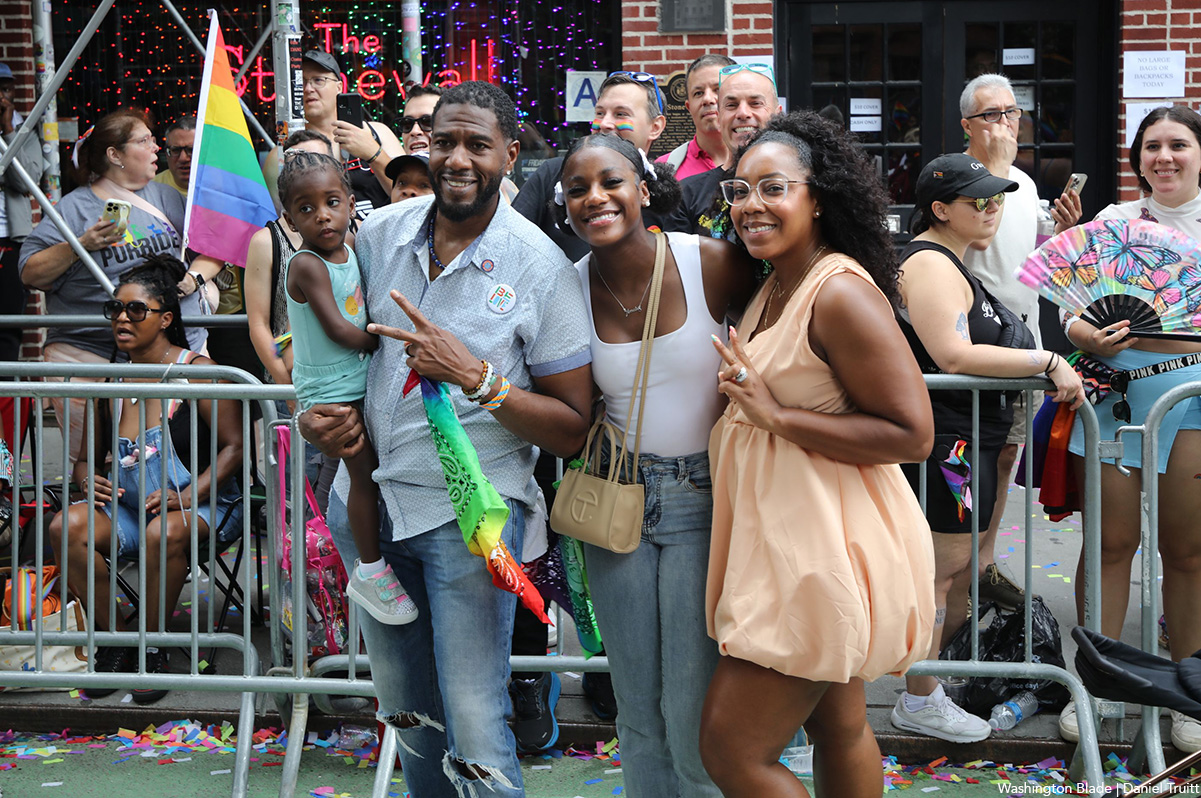
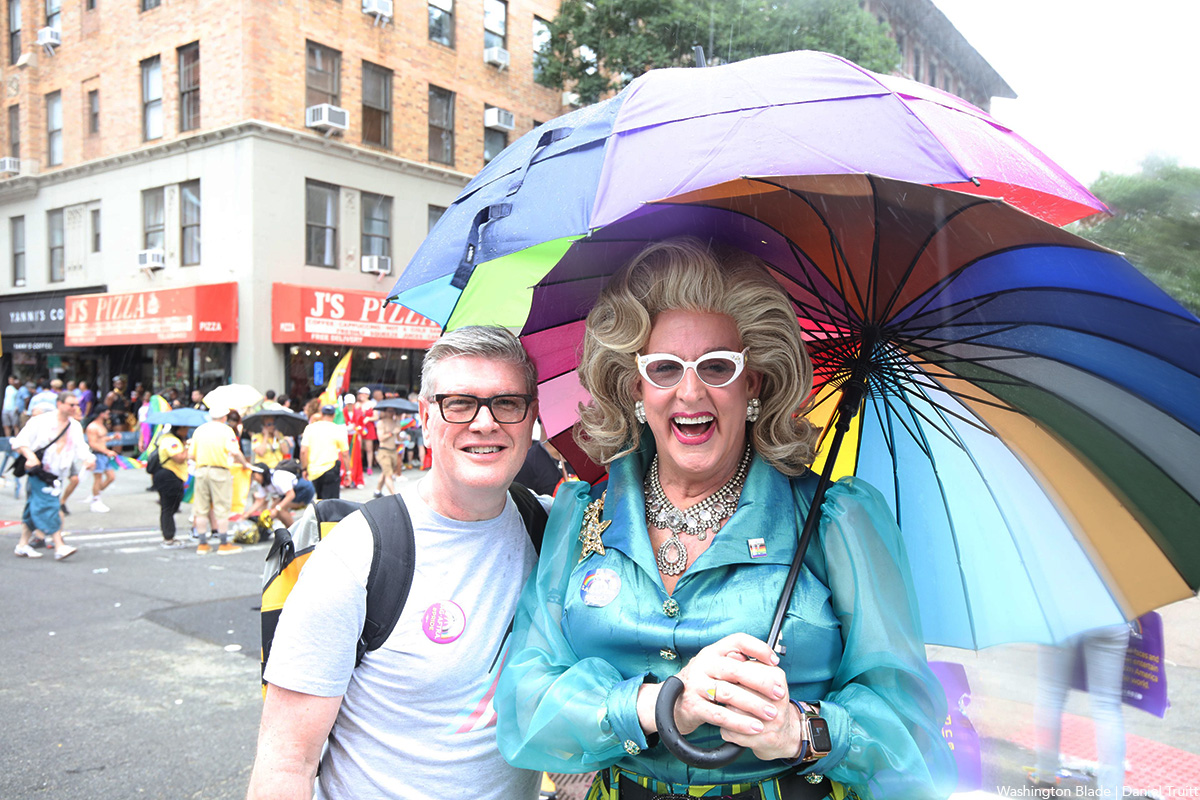
-

 Canada3 days ago
Canada3 days agoToronto Pride parade cancelled after pro-Palestinian protesters disrupt it
-

 Baltimore5 days ago
Baltimore5 days agoDespite record crowds, Baltimore Pride’s LGBTQ critics say organizers dropped the ball
-

 Politics1 day ago
Politics1 day agoHRC slams White House over position opposing gender affirming surgeries for minors
-

 U.S. Supreme Court2 days ago
U.S. Supreme Court2 days agoConcern over marriage equality in US grows two decades after first Mass. same-sex weddings

